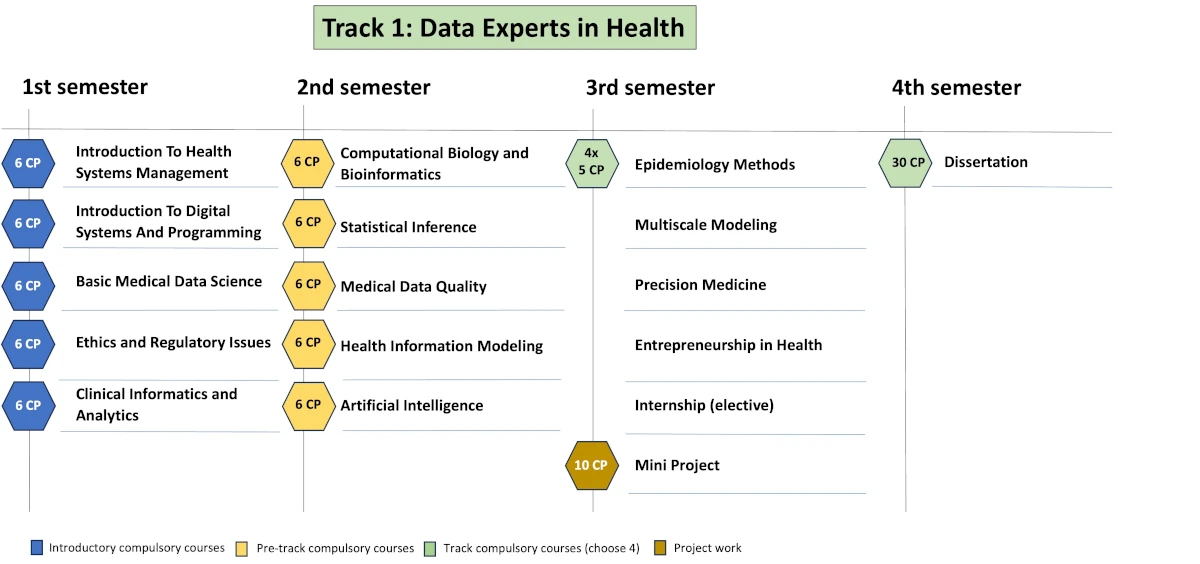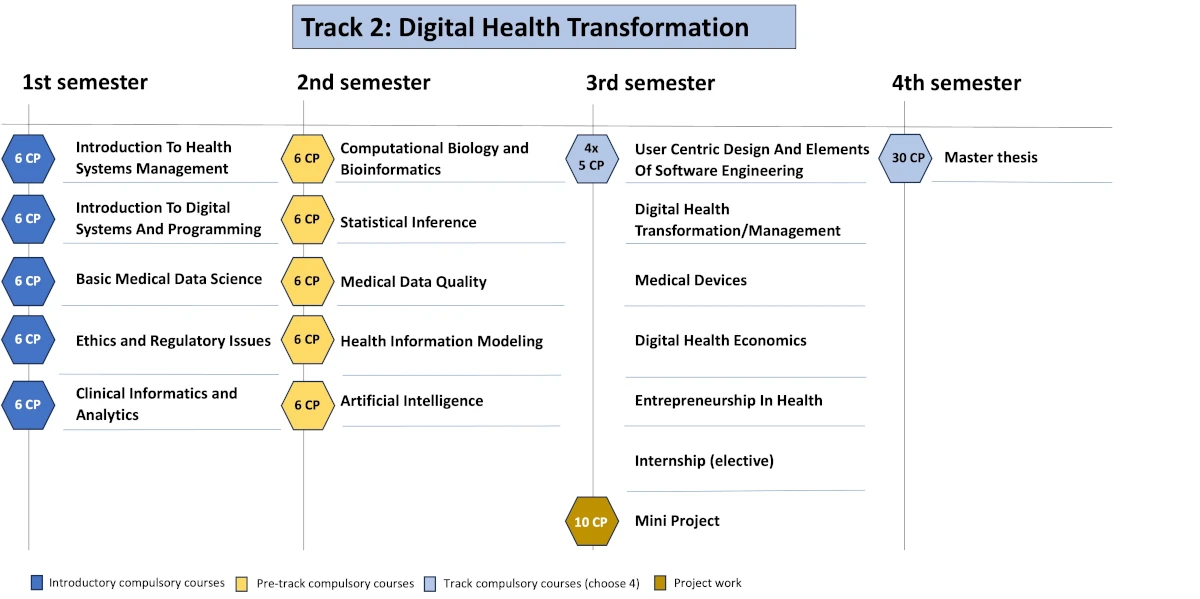About the course
The 2-year, full-time MSc program in Digital Health is provided by the University of Ioannina through the Department of Materials Science and Engineering in conjunction with the Medical School and the Biomedical Research Institute - Foundation for Research and Technology – Hellas (FORTH)
The MSc program aims to impart the multidisciplinary knowledge and abilities required to spur innovation in the rapidly expanding field of digital health and is designed for professionals in their early or later career stages, as well as students who just graduated. It accepts students from various fields such as Medical Sciences (B.Med.Sc.), Pharmacology, Exact sciences, Engineering schools and Schools of Economics. The MSc program includes two tracks of specialization: a) Data experts in Health and b) Digital Health Transformation. Emphasis is given in the promotion of theoretical and practical training and enhancement of skills in data engineering in healthcare, software engineering skills in healthcare and data modelling.
In this MSc program, students will gain a range of skills in key areas as presented below.
- Designing and deploying innovative technological solutions to improve healthcare delivery.
- Utilizing core software engineering principles within the context of healthcare informatics.
- Staying abreast of the latest advancements and shifts in the field of digital health.
- Evaluating healthcare processes and recommending appropriate digital solutions.
- Ensure minimal disruption while maximizing the benefits of digitization in healthcare services.
- Crafting eHealth solutions to address real-world healthcare challenges.
- Leveraging advanced digital tools to facilitate seamless communication and health data exchange.
- Implementing ICT solutions specifically designed for optimizing patient care.
- Keeping abreast of cutting-edge digital communication technologies within healthcare settings.
- Utilizing health information models to represent healthcare data structures and processes.
- Designing and implementing semantic data models adhering to HL7 FHIR standards.
- Ability to sift through diverse medical data to identify significant patterns, trends, and insights.
- Expert knowledge in programming languages for data analysis like Python, R.
- Capability to manage healthcare data systems with a focus on robustness and reliability.
- Creating trustworthy and explainable AI pipelines that adhere to ethical standards.
- Expertise in developing data curation workflows promoting data completeness and conformity.
- Identifying and mitigating biases in medical data during the pre-processing stage.
- Using multiscale modeling and stochastic processes for in silico simulations of diseases, organs.
- Employing numerical optimization to enhance decision-making processes in healthcare.
- Ability to analyze and integrate diverse healthcare data to derive meaningful insights.
- Developing data-driven pipelines to support informed decision-making in healthcare.
- Evaluating healthcare systems and policies, identifying areas for improvement.
- Formulating evidence-based recommendations to enhance healthcare delivery and patient care.
- Ability to navigate and resolve the balance between cost-effectiveness and ethical considerations.
- Harnessing ethical and regulatory landscapes governing digital health.
- Understanding the profound effects of digital transformation on healthcare research and practice.
- Ensuring patient confidentiality and data integrity during healthcare research.
- Effectively communicating findings and recommendations to healthcare stakeholders.
- Develop business models that capitalize on digital transformation in healthcare.
- Identify and manage risks associated with digital health ventures.
- Managing regulatory compliance for digital health products and services.
Overall value
The acquired skills collectively prepare students for dynamic roles in healthcare technology, data management, system design, and policy development, aligning with the current and future needs of the digital health industry.
MSc Program Outline
The MSc in Digital Health is a two-year full time MSc program (four semesters), offering a total of 120 ECTS. Briefly, the first semester comprises of five compulsory courses (30 ECTS), followed by a set of five compulsory pre-track courses (20 ECTS) in the second semester. In the third semester, the student has to select between Track 1 and Track 2 and select four courses (20 ECTS), plus the compulsory mini- project (10 ECTS). Finally, the last semester is dedicated to the preparation and presentation of the dissertation (30 ECTS).

